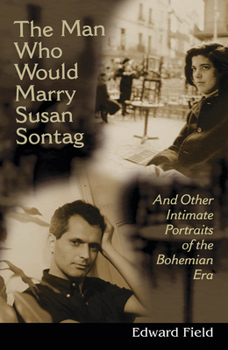The Man Who Would Marry Susan Sontag: And Other Intimate Literary Portraits of the Bohemian Era
Select Format
Select Condition 
Book Overview
Long before Stonewall, young Air Force veteran Edward Field, fresh from combat in WWII, threw himself into New York's literary bohemia, searching for fulfillment as a gay man and poet. In this vivid account of his avant-garde years in Greenwich Village and the bohemian outposts of Paris's Left Bank and Tangier--where you could write poetry, be radical, and be openly gay--Field opens the closet door to reveal, as never been seen before, some of the most important writers of his time.
Here are young, beautiful Susan Sontag sitting at the feet of her idol Alfred Chester, who shrewdly plotted to marry her; May Swenson and her two loves; Paul and Jane Bowles in their ambiguous marriage; Frank O'Hara in and out of bed; Fritz Peters, the anointed son of Gurdjieff; and James Baldwin, Isabel Miller (Patience and Sarah), Tobias Schneebaum, Robert Friend, and many others. With its intimate portraits, Field's memoir brings back a forgotten era--postwar bohemia--bawdy, comical, romantic, sad, and heroic.






